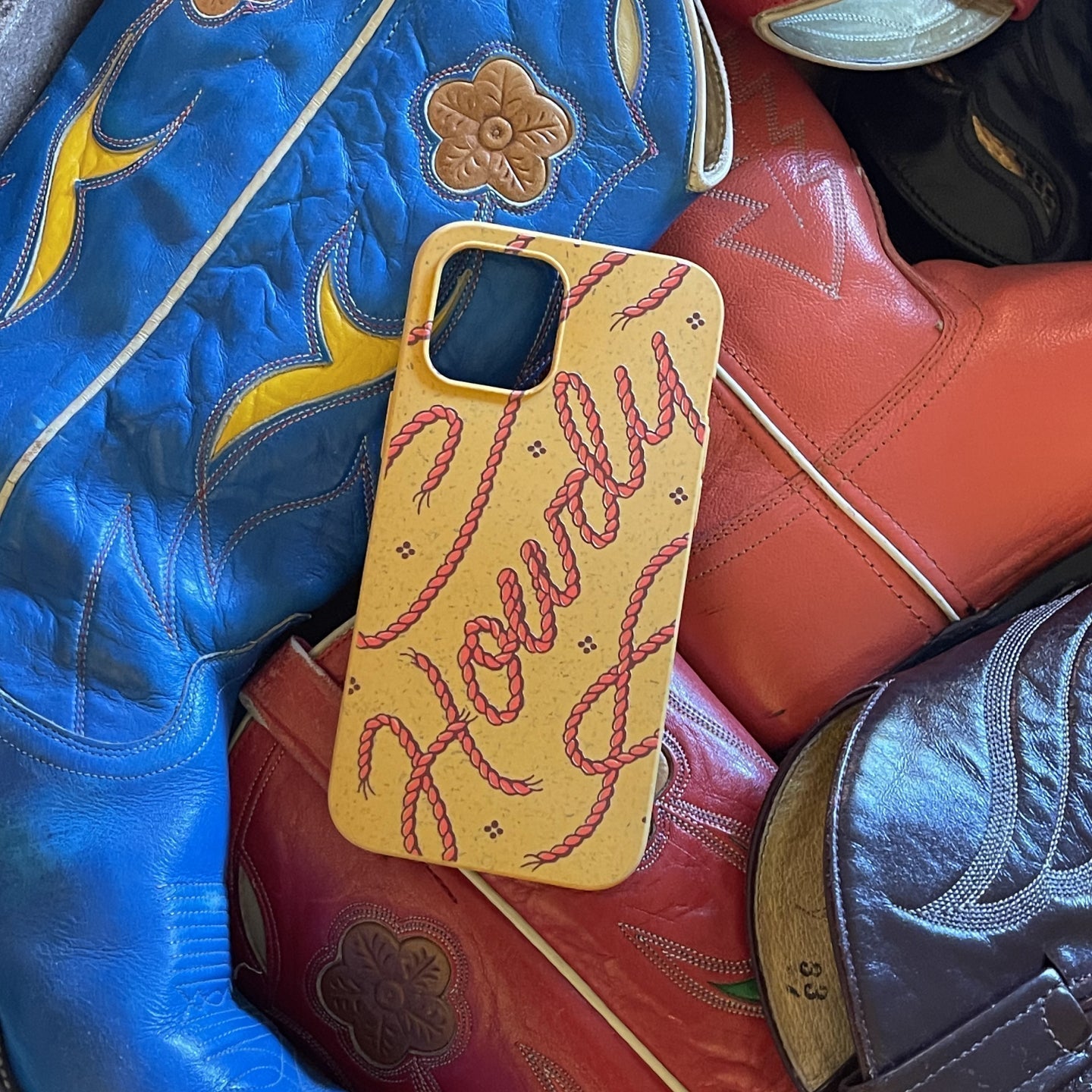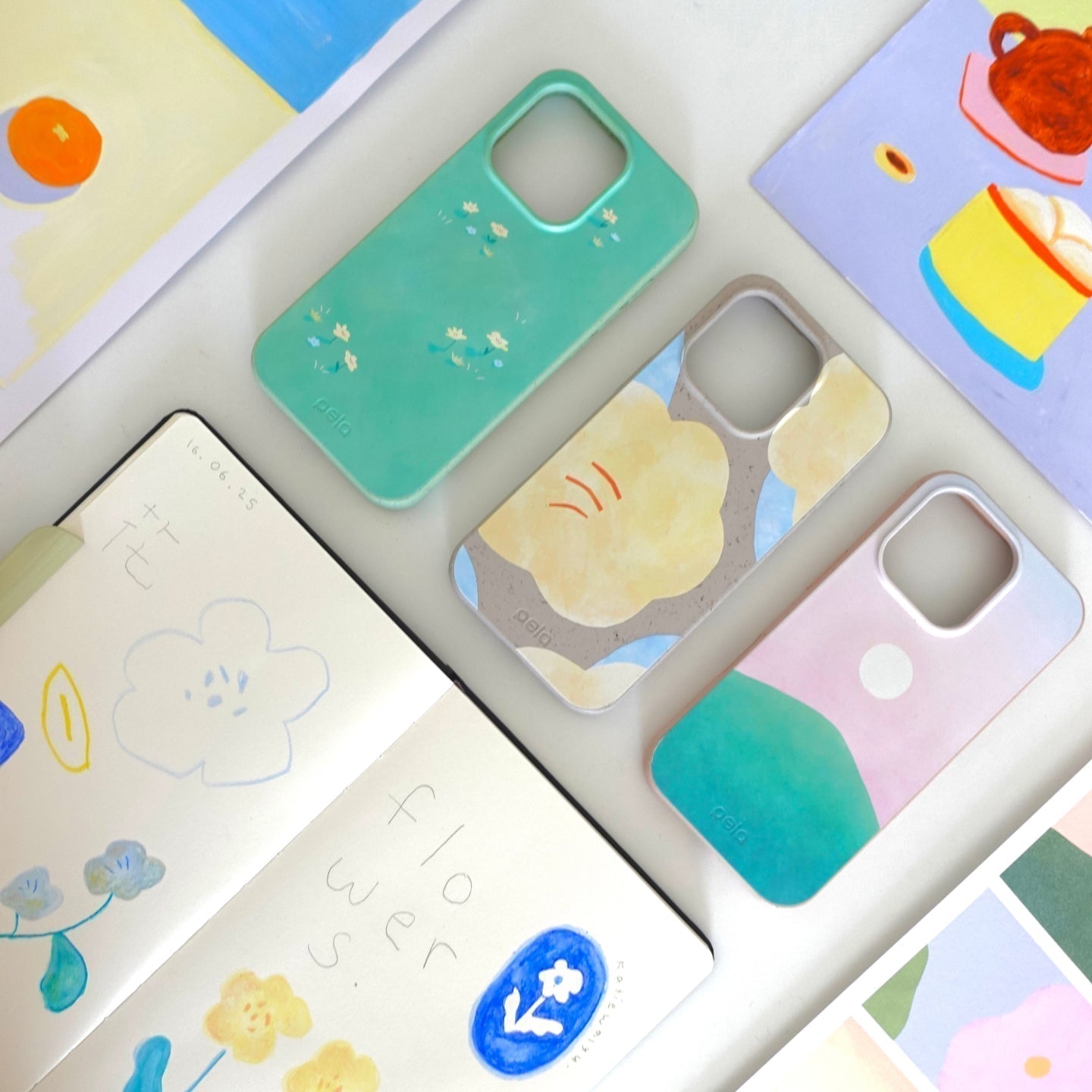Similar to the iterations of iPhone 11 and later models, the iPhone 14 series is equipped with water resistance and an IP68 rating. But, what does this rating mean? And is the iPhone 14 waterproof with or without its iPhone 14 Plus case? Here is everything you need to know about IP ratings and how well your iPhone 14 will do underwater.
Understanding IP Ratings
IP rating stands for Ingress Protection rating, and it is a standard set by the IEC (International Electrotechnical Commission). The rating is designed to measure how electronic devices hold up against liquids and solid objects, such as dust.
There are two numbers in the IP rating. The first number is the level of protection against solid objects, and the second number is the level of protection against liquids. Here is a slightly more detailed look at the numbers.

Protection Against Solids (1st Number):
- 0: Offers no protection
- 1–6: Offers protection against solid objects of different sizes
- 7: Protection against dust
- 8: Complete protection against dust
Protection Against Liquids (2nd Number):
- 0: Offers no protection
- 1–8: Provides water resistance against various levels of exposure, from dripping to full immersion.
For instance, an IP67-rated iPhone is dust-resistant and can survive being submerged in 1 meter of water for 30 minutes, while an IP68-rated iPhone can withstand being immersed in 6 meters of water for the same duration.
Although these ratings provide general guidelines, they do not suggest the device is completely protected against damage from water. You must also consider other factors, such as temperature and water pressure.

Why Are IP Ratings Important?
IP ratings are important as they provide consumers with an objective and standardized measure of protection, whether it’s against solids or liquids. Here are some reasons these IP ratings are important:
- Protection against damage: By looking at an electronic device's IP rating, you can determine whether it has built-in protection against dust or liquids. A water-resistant rating can help you determine if your phone is protected against rain, spills or even full immersion in water.
- Consumer confidence: As IP ratings are standardized, you can make informed decisions based on your needs. You can also trust that the IP ratings are accurate.
- Reliability: When a device is tested and achieves a specific IP rating, it has met certain industry standards. This shows to what extent the device is considered reliable and durable.
- Design/engineering: As IP ratings are a standard measurement, manufacturers design devices with these IP ratings in mind. IP ratings help manufacturers create more durable electronic devices.
- Safety and compliance: Some industries require that devices have specific IP ratings for safety reasons. Devices used in the health care industry, for example, need higher levels of protection.
Does the Depth of Submersion Matter if an iPhone Is Waterproof?
It’s important to note that even if your iPhone has a waterproof label, the depth you submerge in can matter. While the iPhone 14 can be submerged in around 6 meters of water for 30 minutes, there may be limitations, such as temperature and water pressure.
With Apple specifying a water resistance of up to 6 meters, you can be assured that accidental submersion in the toilet bowl or shallow end of the pool won't damage your iPhone. However, exceeding this limit increases the risk of water penetrating the device and causing potential damage.

Can You Use the iPhone 14 in the Shower?
The iPhone 14 series is designed to be water-resistant, and with an IP68 rating, your phone should be fine if you accidentally spill or splash water on it. Even brief exposure to water should be fine.
Having said that, Apple does not recommend showering with your phone intentionally. Other factors can affect the phone while you’re showering, such as the temperature of your water and the water pressure. These factors may cause damage to your iPhone over time.
Moisture can also accumulate in the phone’s openings, such as the charging port. This continuous exposure to water can affect the functionality of your phone. And while it’s true that the iPhone 14 has an IP68 rating, it’s best to avoid exposing it to a lot of water or moisture in general.
Is the iPhone 14 Safe To Use Underwater?
With the IP68 rating, the iPhone 14 series is designed to be relatively safe underwater for a short period.
However, it’s best to avoid immersing it in the ocean as the salt water can corrode the phone’s interior parts. Even lake water may harbor some bacteria and microbes that can negatively affect your phone. You should also remember that over time, your phone will age and may become less water-resistant.
Avoid intentionally immersing your phone in water, as prolonged exposure to water may eventually speed up the phone’s demise.
Activities You Shouldn’t Do With Your iPhone
Apple has taken a lot of measures to ensure your iPhone 14 doesn’t get damaged if you accidentally spill water on it or if you drop it into a pool. Despite this reassurance, there are some water activities you should avoid doing with your iPhone 14.
- Scuba diving and snorkeling: Although your phone can withstand a depth of up to 6 meters, you may go slightly deeper while scuba diving without realizing it. In addition, the pressure at depths of roughly 6 meters can compromise your phone’s functionality. While snorkeling isn’t a deep-water activity, a lot of snorkeling is done in salty ocean water. As mentioned before, salt water can corrode your phone’s metal parts over time.
- Pools with chlorine: The iPhone 14 is designed to handle fresh water, but it may not be resistant to chlorine. As there’s no telling what prolonged exposure to chlorine will do, it’s best to leave your phone with the rest of your stuff while swimming in pools with chlorine.
- Hot tubs or saunas: The humidity and temperatures of hot tubs and saunas may affect the phone’s functionality and its internal components.
- Extreme water pressure: Water activities, like jet skiing or water skiing, can expose your phone to excessive amounts of water pressure. This may result in water penetrating the phone or even breaking it.
- Turbulent or fast-moving water: Having your phone under a waterfall or exposed to intense water pressure can cause damage. Even if you have a phone case and it’s attached to your body with a phone grip holder, the turbulent water can still penetrate the phone and cause damage.
- Excessive exposure to water: Apple designed these phones to handle occasional exposure to water, such as spills or accidental submersion. However, if you continuously expose your phone to water, you may weaken the phone’s resistance. With time, the iPhone’s protective features may experience wear and tear.
- Chemicals or liquids other than water: Not all chemicals or liquids are harmless, but some may corrode your phone or simply eat away at the metal parts. Avoid exposing your phones to solvents, detergents and soaps as well.

What To Do If the iPhone 14 Gets Wet?
If your iPhone gets wet, you must take immediate steps to minimize any damage. Follow these steps:
- Step 1: Remove your iPhone from the water: The first thing you should do is remove your iPhone from the water as soon as you can.
- Step 2: Turn off your iPhone: Next, you’ll want to turn your iPhone off. If there’s an iPhone case, remove it.
- Step 3: Dry the exterior: Use a soft cloth to dry the exterior of your iPhone. If you dropped it in salt water, wipe it off with fresh water to get any salt off of it. Make sure to dry all the openings, such as the charging port. Dry the iPhone case as well.
-
Step 4: Don’t plug it in or press buttons: Don’t charge your iPhone, and don’t plug it into anything. You should also avoid pressing any buttons at this point.
Step 5: Let your iPhone dry: Keep your iPhone in a well-ventilated and dry area. Don’t use things like a blow dryer to hasten the drying process. Instead, let it dry naturally. Wait about 48 hours before plugging anything into it. - Step 6: Test your iPhone to see if it works: After the 48-hour drying period, turn your iPhone back on and charge it to see if it’s still working.
If your iPhone is behaving strangely or it doesn’t turn on, contact Apple Support immediately. They can offer repair options.
What Is the Difference Between Waterproof and Water Resistant?
The term waterproof and water-resistant are often used interchangeably. However, there are small differences.
A water-resistant device is designed to withstand water to some degree but not for a long period. On the other hand, a waterproof device can continue to work even when submerged in water. Even within the waterproof label, however, there are different levels of waterproofing and different submersion periods. For this reason, there tends to be a gray area between water-resistant and waterproof devices.

Keeping Your iPhone 14 Safe
The Apple iPhone 14 comes with a lot of exciting features, including the new dual camera system. It’s also 18% faster than the iPhone 13. Despite its IP68 rating, though, it’s best to avoid long exposure to water. Another way to protect it from accidental spills, rain or moisture is to invest in one of our high-quality Pela iPhone 14 cases.This way, you can be confident that you are taking steps to keep your iPhone safe.
Image Sources:
GVLR/Shutterstock.com
ganjalex/Shutterstock.com
Kaspars Grinvalds/Shutterstock.com



